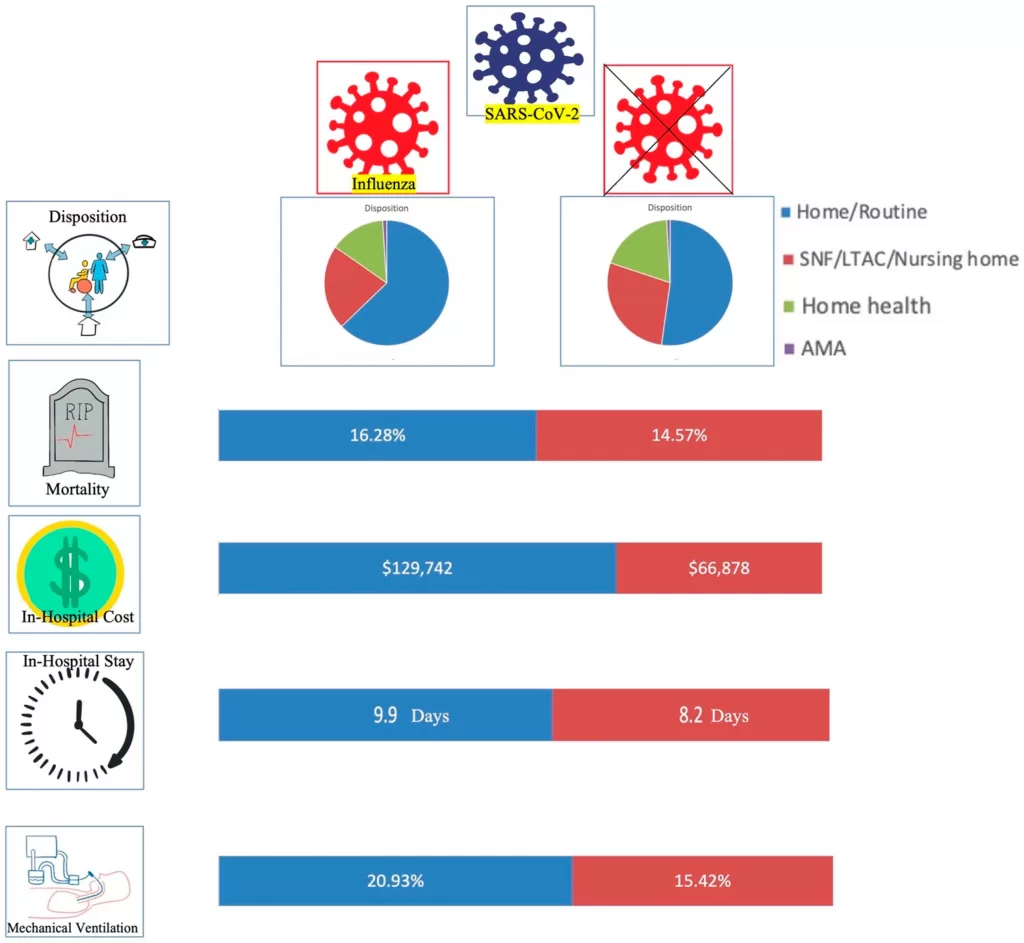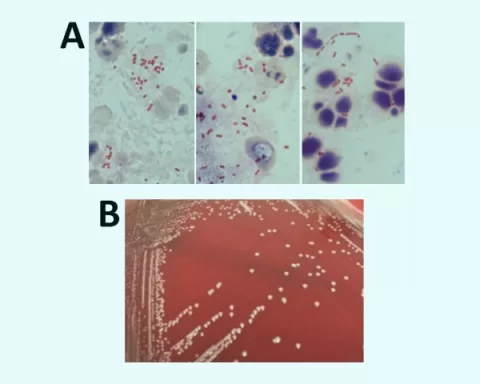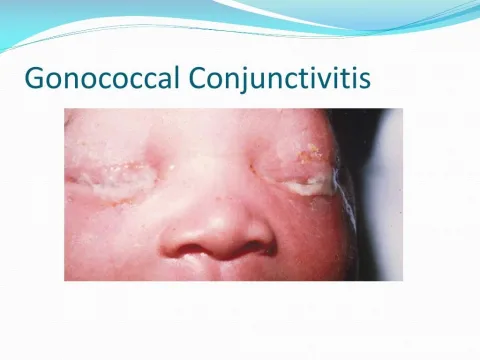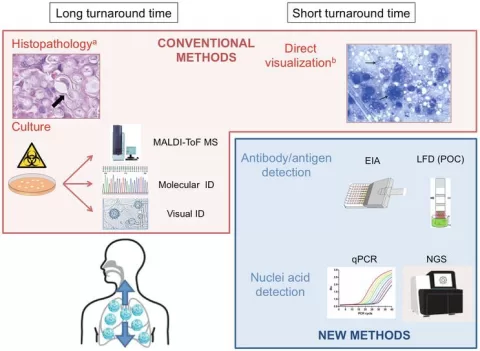As we navigate the ongoing challenges posed by health threats, staying updated on COVID-19 and Influenza Updates remains crucial. Recent reports highlight an uptick in flu cases across the United States, particularly the emergence of new influenza variants, which are raising concerns among health officials. Concurrently, insights into COVID-19 convey significant findings about mRNA vaccine effectiveness and its correlation with antibody response after vaccination. Additionally, alarming news of polio cases in multiple countries, alongside avian flu outbreaks affecting birds in various states, underscores a complex public health landscape. Keeping abreast of these developments ensures individuals are well-informed and can take essential precautions.
In the realm of infectious diseases, current reports on COVID-19 and seasonal flu are essential for public awareness. The latest updates reveal a rise in cases driven by emerging influenza strains, highlighting an urgent need for vigilance. Moreover, advancements regarding vaccine efficacy, particularly the impact of mRNA vaccines on immunity, are pivotal for ongoing discussions about COVID-19 management. Health authorities are also dealing with new poliovirus cases and reports of avian flu, which complicate the overall picture of global health. By understanding these intertwined issues, individuals can better equip themselves against both respiratory viruses and other infectious challenges.
COVID-19 and Influenza Updates
The COVID-19 pandemic continues to pose significant challenges across healthcare systems worldwide, particularly with the emergence of new variants and the ongoing management of influenza cases. Recent data indicates a rise in flu activity, particularly in the southeastern United States, where the CDC has noted a concerning trend in variant strains such as H3N2v and H1N2v. With the dual threat of COVID-19 and influenza, health officials are advocating for continued vaccinations and booster shots to provide robust immunity against both viruses.
Research also highlights the correlation between post-vaccination symptoms and the effectiveness of the mRNA vaccines used against COVID-19. A recent study published in JAMA suggests that systemic symptoms, such as fever and chills, after vaccination are associated with stronger antibody responses. This connection underscores the importance of monitoring vaccine performance and encourages individuals to remain vigilant about receiving timely vaccinations for both COVID-19 and influenza.
Influenza Variants and Their Epidemiological Impact
Influenza infections have been on the rise, and various strains are now reported across the nation. The CDC confirmed several cases of the H3N2v strain linked to swine exposure at agricultural fairs, with a notable report from Michigan highlighting a case in a child who has since recovered. This outbreak signals the importance of local health awareness, particularly in states where agricultural activities are prevalent. As flu activity climbs, maintaining heightened surveillance for new variants is crucial for public health.
Current data reveals that nonvariant H3N2 is the predominant circulating strain, accounting for nearly 80% of cases. Such trends in flu variants not only complicate treatment protocols but also present unique challenges for vaccine formulations. Health experts highlight the need for adaptive vaccine strategies that can effectively address the evolving landscape of influenza variants while ensuring comprehensive coverage against severe respiratory illnesses amid the lingering threat of COVID-19.
Recent Polio Developments Across Multiple Nations
The resurgence of polio cases in various countries warrants increased global health vigilance. Recent reports from the Global Polio Eradication Initiative indicate new instances of vaccine-derived polio in several nations, including Benin and the Democratic Republic of the Congo. These developments reflect the ongoing challenges faced in global vaccination efforts and the urgency to combat the spread of this debilitating virus. Monitoring and responding to vaccine-derived poliovirus type 2 (cVDPV2) cases is of particular importance as they can lead to outbreaks in under-vaccinated populations.
Consequently, public health officials are emphasizing the need for booster vaccinations, especially in regions where polio remains endemic or where vaccination coverage has lapsed. The vaccination campaigns must prioritize accessibility and community engagement to ensure the long-term eradication of polio. Continued monitoring of polio cases and effective communication strategies are critical to preventing further incidents and protecting vulnerable populations.
Avian Influenza and Its Global Implications
Recent outbreaks of highly pathogenic avian influenza (HPAI) H5N1 have raised alarms among agricultural and public health authorities. The USDA reported an outbreak in a Rhode Island poultry flock, signaling a substantial threat to avian populations across the U.S. Poultry farmers are encouraged to implement biosecurity measures to prevent the spread of the virus, particularly given its transmission potential to other bird species and possibly to humans.
On an international scale, the emergence of H5N1 in countries like Mexico and Colombia underscores the global nature of zoonotic diseases. As migratory birds are common vectors for the transmission of avian flu, health officials must collaborate internationally to track and mitigate outbreaks. Given the economic implications of avian flu outbreaks on poultry production and market stability, ongoing surveillance and research dedicated to vaccine development are critical for managing both human and animal health.
The Role of mRNA Vaccines in Combatting COVID-19
The introduction of mRNA vaccines has dramatically transformed the landscape of infectious disease control, particularly in response to the COVID-19 pandemic. Evidence suggests that mRNA vaccines, such as those developed by Pfizer and Moderna, show impressive effectiveness in eliciting strong immune responses against SARS-CoV-2, especially after two doses. Ongoing studies reinforce the pivotal role these vaccines play in reducing both the incidence of severe disease and the overall mortality rate among affected populations.
Moreover, the emergence of variants has highlighted the need for continuous updates and adaptations of vaccine formulations to maintain efficacy. Research focused on mRNA vaccine effectiveness against variants like delta and omicron is critical for public health strategies. By staying ahead of viral mutations, vaccination programs can better protect vulnerable populations and ultimately curb the pandemic’s impact.
The Public Health Response to Respiratory Illnesses
The rise in respiratory illnesses, particularly during the post-pandemic period, emphasizes the necessity for robust public health responses. With both COVID-19 and influenza actively circulating, healthcare systems are called upon to implement comprehensive surveillance and rapid response measures. Enhancing diagnostic capabilities for flu and COVID-19 can ensure timely isolation of cases and prevent hospital overcrowding and health system strain.
Furthermore, public health campaigns to promote vaccination and respiratory hygiene practices are vital in mitigating the spread of respiratory infections. Community engagement and education about the signs and symptoms of COVID-19 and influenza can empower individuals to seek medical attention promptly and adhere to preventive measures, thereby reducing overall hospitalization rates and fatalities related to both viruses.
Awareness of Emerging Infectious Diseases
The emergence of infectious diseases such as polio and avian influenza presents a critical challenge for global health security. Continuous monitoring, research, and public awareness campaigns play vital roles in managing outbreaks. The collaboration between international health organizations, local governments, and healthcare providers must be strengthened to ensure swift response actions, especially in regions with significant immunization gaps.
Emerging infectious diseases often require adaptive strategies that involve not only the development of vaccines but also the creation of effective communication channels. This includes informing the public about vaccination campaigns, preventative measures, and the importance of compliance with public health directives to prevent the spread of these diseases.
Vaccination Strategies: Preparing for Future Outbreaks
Effective vaccination strategies are paramount in preventing outbreaks of diseases such as influenza, polio, and other infectious illnesses. Health organizations are increasingly focusing on developing integrated vaccination campaigns that address multiple diseases simultaneously. This approach can maximize resource utilization and ensure that communities are effectively protected against multiple threats.
Moreover, the importance of educating healthcare professionals and the public about the benefits of vaccinations cannot be overstated. Equipping healthcare workers with knowledge on vaccination schedules and eligibility can enhance community participation and confidence, leading to higher vaccination rates and better public health outcomes.
Global Surveillance and Response Mechanisms
Robust global surveillance systems are essential for early detection and response to infectious disease outbreaks. The interconnectedness of health data across countries allows for a more integrated approach to identifying potential threats from pathogens such as avian influenza and COVID-19. Enhanced data sharing among countries can facilitate timely interventions and inform vaccine development processes.
Additionally, training and resource allocation for local health authorities are crucial for effective surveillance and outbreak management. A focus on building resilient health systems capable of mobilizing resources during crises can significantly reduce the impact of future outbreaks, safeguarding community health globally.
The Importance of Research in Infectious Disease Management
Continuous research into infectious diseases and their transmission dynamics is vital for effective management. Studies that focus on vaccine efficacy, virus mutations, and the socio-economic impacts of outbreaks contribute invaluable data that can drive public health policies. For instance, understanding how the mRNA vaccine performs against emerging COVID-19 variants can inform booster recommendations and changes in vaccination strategies.
Moreover, interdisciplinary research efforts, drawing from fields such as epidemiology, virology, and public policy, can create more comprehensive strategies for combating infectious diseases. Cross-sector collaboration will enhance the capability to respond effectively to the ever-evolving landscape of infectious threats and prepare for future challenges.
Enhancing Public Involvement in Vaccination Campaigns
Engaging communities in vaccination campaigns is essential for achieving widespread immunization, particularly in the context of outbreaks like COVID-19 and influenza. Public involvement can be fostered through outreach programs that educate individuals about the importance of getting vaccinated. It’s crucial to provide transparent information about vaccine safety and efficacy to build trust and counter misinformation.
Moreover, supporting local healthcare workers as advocates for vaccination can significantly boost community participation. Their relationship and credibility within the community can help address hesitancies and encourage individuals to partake in the vaccination process. Collaborative efforts from public health entities and local influencers are key to amplifying the message of vaccination and ensuring high uptake.
Current Trends in Serological Response to Vaccines
Monitoring serological responses to vaccines, particularly mRNA-based therapies, provides insights into the effectiveness of immunization efforts. Recent studies indicated that individuals who experience systemic symptoms post-vaccination tend to have higher antibody levels, suggesting a robust immune response. This trend emphasizes the need for ongoing evaluation of immune responses to inform booster strategies and adapt vaccinations as necessary.
In addition, understanding various factors influencing seroconversion rates—such as age, sex, and prior infections—can aid in tailoring vaccination strategies to enhance community immunity. By optimizing vaccination protocols based on these insights, public health officials can better prepare for potential future surges in respiratory infections.
Frequently Asked Questions
What are the latest COVID-19 news updates as of October 2022?
As of October 2022, the COVID-19 news highlights include studies showing that experiencing systemic symptoms after receiving the mRNA vaccine is associated with a stronger antibody response. Additionally, research indicates that statins may reduce the severity of COVID-19 and decrease the risk of death in hospitalized patients. It’s crucial to stay informed about these developments as they impact public health strategies and vaccination guidelines.
What are the current updates on influenza variants in the United States?
Recent updates on influenza variants indicate a rise in flu activity across the U.S., particularly in the southeast and south-central regions. The CDC reported cases of the variant H3N2 (H3N2v) in Michigan, where a child recovered after exposure at an agricultural fair. Nonvariant H3N2 is currently the dominant strain, comprising a significant percentage of reported cases. Monitoring these influenza variants is essential for public health and vaccine effectiveness.
How many polio cases have been reported recently, and which countries are affected?
Recently, new polio cases have emerged in four countries: Benin, the Democratic Republic of the Congo (DRC), Yemen, and Malawi. The Global Polio Eradication Initiative reported various circulating vaccine-derived poliovirus cases. With ongoing outbreaks, it’s vital to continue vaccination efforts to prevent further spread.
What are the latest avian flu updates in the U.S. and abroad?
Latest avian flu updates include confirmed outbreaks of H5N1 in various U.S. states, including a new outbreak in Rhode Island. The USDA reported that this strain has led to the loss of millions of birds since February. Internationally, Mexico and Colombia have also reported incidences of H5N1, highlighting the need for vigilance in poultry health monitoring and biosecurity measures.
What is the effectiveness of mRNA vaccines against COVID-19?
Studies have shown that mRNA vaccines such as Pfizer/BioNTech and Moderna are highly effective in eliciting robust antibody responses. Research indicates that individuals reporting systemic reactions after vaccination often exhibit stronger immunity against SARS-CoV-2, reinforcing the importance of these vaccines in controlling the pandemic.
| Topic | Key Points |
|---|---|
| Influenza Variants | CDC reports rise in flu activity, with new variant cases and nonvariant H3N2 dominating. |
| Polio Updates | New vaccine-derived polio cases reported in Benin, DRC, Yemen, and Malawi. |
| Avian Influenza | First H5N1 outbreak in Rhode Island; additional detections in Mexico and Colombia. |
| COVID-19 Vaccine Effects | Study links systemic symptoms after vaccination to stronger antibody responses. |
| Statins and COVID-19 | Research indicates statins may lower risk of death and severity in COVID-19 patients. |
Summary
COVID-19 and Influenza Updates have highlighted crucial developments in public health. As flu activity rises, the CDC confirms additional variant strains in the U.S., while polio cases have emerged in several nations. In the realm of avian influenza, new outbreaks underscore the ongoing risk to poultry. Meanwhile, recent findings on COVID-19 vaccination emphasize the significance of post-vaccination symptoms as indicators of antibody responses and explore statins’ potential benefits in managing COVID-19 severity. These updates reflect the ever-evolving landscape of infectious diseases, underscoring the need for continued vigilance and research.
The content provided on this blog (e.g., symptom descriptions, health tips, or general advice) is for informational purposes only and is not a substitute for professional medical advice, diagnosis, or treatment. Always seek the guidance of your physician or other qualified healthcare provider with any questions you may have regarding a medical condition. Never disregard professional medical advice or delay seeking it because of something you have read on this website. If you believe you may have a medical emergency, call your doctor or emergency services immediately. Reliance on any information provided by this blog is solely at your own risk.








